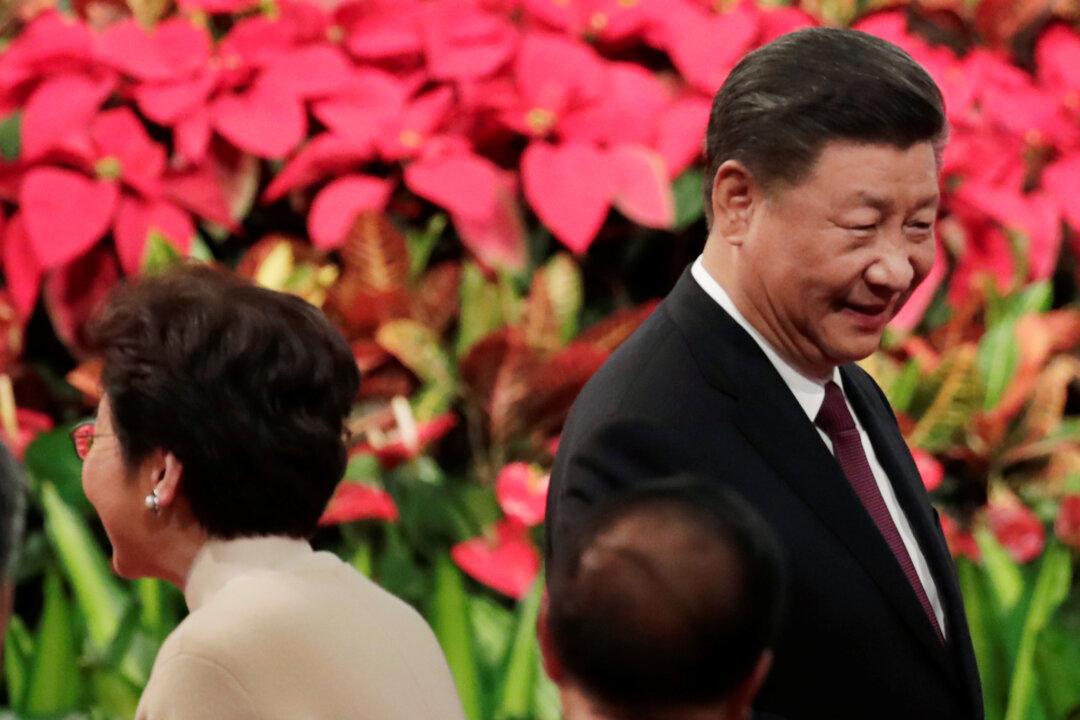Chinese Leader Xi Jinping said Dec. 20 that the regime would not allow foreign forces to intervene in its special regions, including Hong Kong, during a visit to its neighboring city of Macau.
At the ceremony marking the 20th anniversary of Macau’s handover to China from Portuguese rule, Xi praised the city’s loyalty and patriotism, making no direct mention of the ongoing protests challenging Beijing’s authority in the former British colony of Hong Kong.





